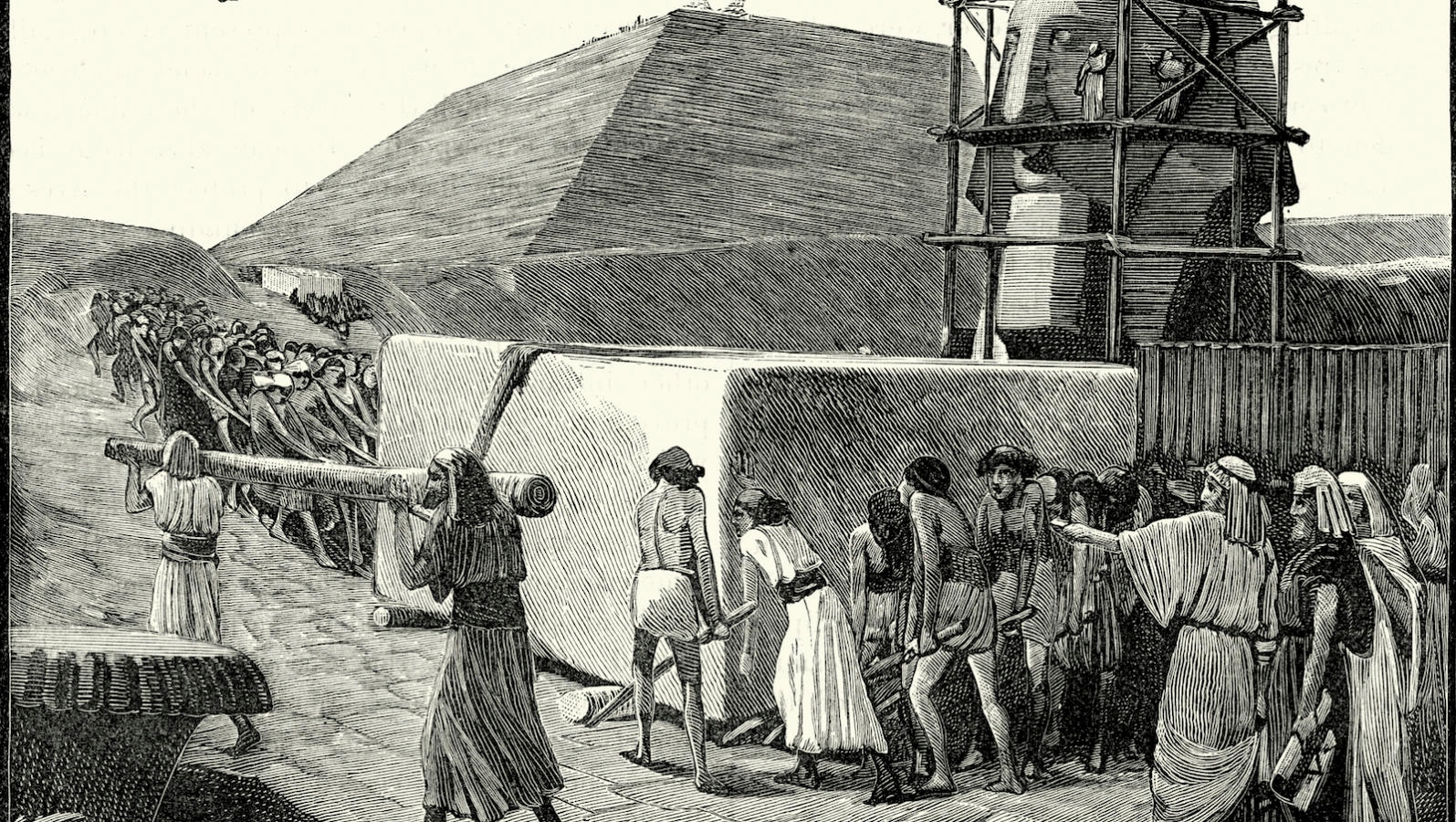Commentary on Parashat Bo, Exodus 10:1-13:16
At the Passover seder, we narrate the story of our slavery as a real-time autobiography, as if we are, at that moment, experiencing the Exodus from Egypt. Eating bitter herbs and crunching matzah, we identify with our Israelite ancestors, a nation of slaves on the other side of freedom.
Contemporary liberation movements also find inspiration in the story of the Israelite nation leaving Egypt. Liberation theology, a movement galvanizing social justice throughout Latin America and the Global South, claims the Exodus as a foundational narrative. Robert McAfee Brown, in his book, Liberation Theology, writes, “Oppressed people today identify easily with the oppressed peoples of yesterday, the Hebrew slaves in the story.”
We Are Pharaoh’s Servants
From my seat in the Global North, I wonder what it might feel like to identify as an ancient Egyptian. To be afflicted with escalating plagues of environmental destruction and disease. To watch as one’s leader, hard-hearted Pharaoh, recklessly and relentlessly refuses to listen to others or change his disastrous course. To be allied with the oppressor instead of the underdog.
Brown understands that he and his typical Global North reader have more in common with the ancient Egyptians than with the Hebrews: “I have come to the uncomfortable conclusion that most of us who read (and write) books like this can be identified as servants in Pharaoh’s court; lower echelon folk who are nevertheless members of the establishment, with advancement possibilities if we play our cards right.”
With your help, My Jewish Learning can provide endless opportunities for learning, connection and discovery.
But what role do the Egyptian courtiers play in the story? A look at the Exodus narrative shows that some servants in Pharaoh’s court actively try to do the right thing in a place where they have limited power. They attempt to stop Pharaoh, and when they fail in this, they aid the Israelites to escape Egypt.
Hearing Moses warn Pharaoh about an imminent plague of locusts, the courtiers cry out (Exodus 10:7), “Let the men go to worship the Lord their God! Are you not yet aware that Egypt is lost?” Pharaoh is temporarily swayed by their collective voice of reason and grants the Israelites permission to leave.
After Pharaoh changes his mind, refusing to send out the Israelites, many of the Egyptians help outfit the slaves for their escape. When they are asked by the Israelites for silver, gold, and clothing, the former masters give generously (Exodus 11:3).
One commentator (Hizkuni) sees this transfer of goods as the Egyptian people’s attempt at economic reparation–they are paying back wages for years of the Israelites’ hard slave labor. Another (Ibn Ezra) goes further, claiming, “the Egyptians actually begged the Israelites to borrow their wealth. This is quite miraculous, totally the opposite of the ordinary way of the world.”
Two Crucial Lessons
Rather than feel uncomfortable about identifying with servants in Pharaoh’s court, Jews of the Global North can gain insight and inspiration from their actions. The Egyptians teach us two crucial lessons:
Speak truth to those in power. The courtiers begged Pharaoh to stop his stubborn destructiveness. They, who themselves lived under tyranny, advocated for change. For those of us living in a democracy, how much more are we responsible for active advocacy?
Share wealth. How can we provide helpful support to those working toward political, economic, and social justice? Can we give in a way that feels “miraculous, totally the opposite of the ordinary way of the world?”
This week, Jews all over the world chant the story of the Israelite Exodus from Egyptian slavery. We will continue to identify with the Hebrew slaves, struggling toward freedom and justice, saved by the outstretched arm of God.
Reading the Exodus this year, our challenge is to acknowledge the role we play as Egyptians in Pharaoh’s court. In an earlier age, Abraham Lincoln warned, “We–even we here–hold the power and bear the responsibility. In giving freedom to the slave, we assure freedom to the free…” How will we raise our voices and stretch out our arms for economic justice and liberation?
Provided by American Jewish World Service, pursuing global justice through grassroots change.



